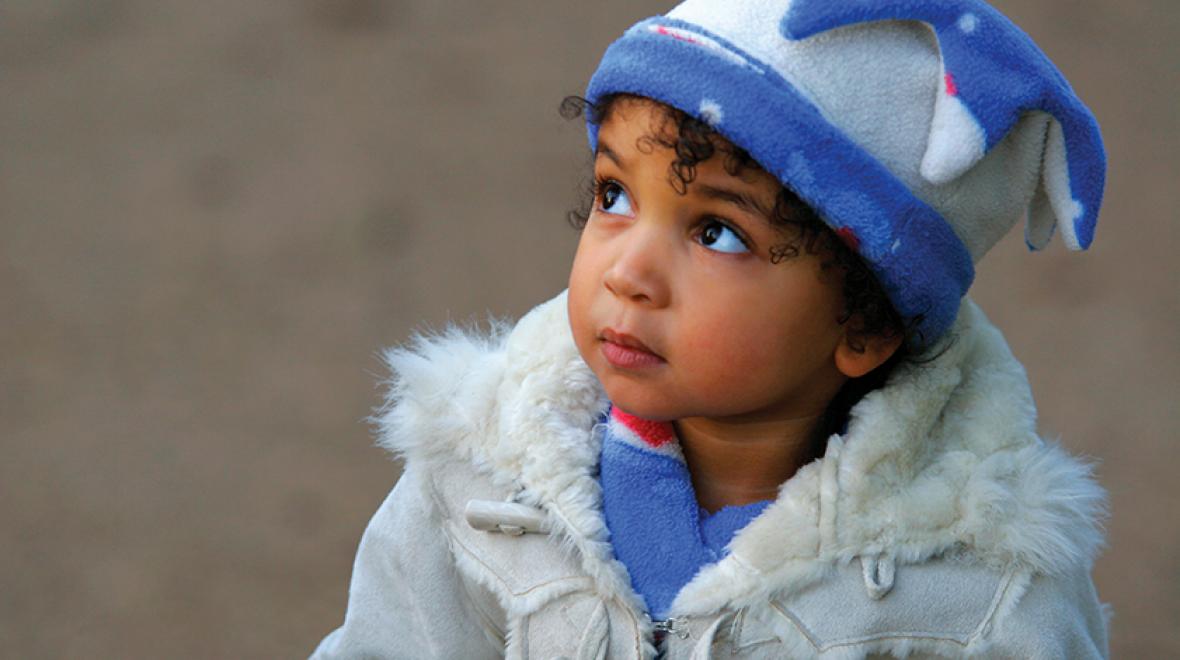
When the pandemic lockdown began in March 2020, I found myself facing the 20 wide-eyed new parents in my South Seattle College parent-infant cooperative class on Zoom for the very first time. The class I was teaching had just shifted from meeting in person to convening online. Our in-person class had felt more like a party than a class, with witty banter and cocktails replaced by stories of baby antics and oxytocin.
In that first Zoom meeting, bewilderment abounded. There were many questions, few answers. Of the many questions, one surfaced as a common refrain: What will we do without our baby parties? In other words, will the babies be all right with all the social distancing?
When the question came up, I was transported back to a child development course I had taken years before. The course stressed that infants and toddlers fare best with one-on-one care as opposed to receiving care in a group setting. At the time, I had not yet worked with infants and I was not yet a parent myself. I was, however, a critical consumer of research. We know that child development research carries bias. Much of it has been conducted in university settings, where researchers and their subjects tend to be white, well-educated and Western. Enter racial, class and cultural bias.
An extrovert myself, I questioned that a one-on-one care setting was always best for all infants. The professor rolled her eyes loudly at me, and for good reason. Every child development specialist I have since encountered ascribes to “attachment theory,” which holds that infants must form a “secure base” with at least one primary caregiver in order for healthy development to unfold. This is why Washington state requires a 1-4 caregiver-to-infant ratio for licensed care settings, even though this requirement makes infant care more expensive than college tuition. This is also why orphanages no longer exist for young children. Even an extrovert like me, who loves nothing more than a rockin’ baby party, now accepts attachment theory as fact.
Knowing this, child development specialists by and large predicted that infants would fare better in the pandemic than older children, whose healthy development rests more on peer and group social interactions. “Yes, the infants will be all right,” we assured the parents. “They learn their social skills from their caregivers, not from one another,” we said. “Just take care of yourself so you can take care of them,” we said.
So, were we right? So many months later into the pandemic, are socially isolated infants and toddlers faring better than others?
Yes … and no. It seems we were right that infants didn’t need peer socialization, but perhaps we were answering the wrong question. The question should have been: If caregivers of infants have minimal support during the pandemic, will the infants be okay?
A longitudinal study conducted across five universities indicates that children who were born during the pandemic have markedly lower scores on standard measures of verbal, motor and overall cognitive ability than those born before the pandemic. The study has been measuring IQ in infants in Rhode Island since 2011. While children born in 2019 had no changes in IQ after the pandemic, children born in 2020 scored lower in verbal, motor and overall cognitive development — corresponding to an average IQ score that is 22 points lower than that of their 2019 counterparts.
Why might infant IQ scores be lower, when more parents were able to be home with infants during the pandemic? Wouldn’t that help build up the “secure base”?
Although the study is not causal, researchers postulate that caregivers were spread thin, and this impacted the infants’ development.
In a related longitudinal study, infants wear little recorders that capture their daily interactions. Anecdotally, researchers are seeing that children have been exposed to more screen time, fewer rich conversations with caregivers and less overall time with caregivers since the pandemic began.
My take? We underestimated the degree to which our relatively individualistic culture becomes more pluralistic when we are parenting.
Cultures carry wisdom, and I believe there is a biological imperative for parents to have extra support, particularly during their child’s earliest years. For some of us, the support is very visible and tangible, such as having full-time child care for our younger kids and in-person schooling for our older kids.
But for many others, support is the cumulative effect of many small things, such as grandparents visiting, babysitting and playdates. When I sat down to make a list of the forms of support parents lost during the pandemic, I came up with 15 material supports in an instant.
This sounds sterile in writing, but what I am describing here is the figurative razing of the proverbial village. While this cumulative loss has not been easy for anyone, the IQ scores suggest that it is especially difficult for infants in their sensitive period of early childhood development. Infants need caregivers who are present, and caregivers cannot be fully present without at least some of the supports listed above.
How will you know if this applies to your child?
It turns out that the top protective factor against lower IQ scores is the mother’s level of education. This means that children in an area with a highly educated population, like Seattle, may fare better than the study’s control group. But this is worrisome news for children in communities with more limited access to education and social supports. As with so many things, low-income families are disproportionately impacted. A parent working more than one job would have been stretched exceptionally thin, as affordable, high-quality child-care options closed during the lockdown.
Fortunately, there is good news for everyone, everywhere: Very young children are the most resilient humans alive, regardless of their family’s income. Those born during the pandemic are all younger than 2. If the first 1,000 days are the most important period for brain development, there are still at least 500 highly sensitive days remaining to help our children rebound.
So, what do we do now? How do we help our little ones catch up?
Make your world bigger again. According to Erin Bernau, a Seattle-based licensed clinical social worker, “A caregiver’s job is to serve as a container for a very young child — we take in the world around us and metabolize it to make it safe and secure for our children. When a caregiver is under undue stress, that work is harder and may even feel impossible at times,” says Bernau. “One of the ways to counteract this is to begin to make our worlds bigger again, thinking about what kind of support we need from our communities. This means being vulnerable and asking for help. … We are simply not built to take care of young children without social and familial support. And nobody signed up to parent during a global pandemic!”
Young children remain unvaccinated, and variants pose a risk to all of us, but there are still safe ways to connect. If you aren’t in a position to bring in substantial support — such as podding with another family, a babysitter or a grandparent — consider engaging your parenting supports again in small ways, knowing that the small things add up. Organizing outdoor playdate swaps for older kids, asking a retired neighbor to cook for you and connecting with a virtual parenting support group are just a few ways you might safely “make your world bigger again.”
Socialize with your small child. Beyond being responsive to their baby’s or toddler’s basic biological needs, caregivers can make efforts to maximize the value of the one-on-one time they do have with small children by engaging in “serve and return” interactions.
Serve-and-return interactions are what they sound like: short back-and-forth “conversations” between caregiver and child, much like hitting a ball back and forth in a tennis match. These interactions are easy and fun to engage in, particularly when the baby is rested, fed and alert. The conversations don’t need to be constant, nor do they have to be conducted with the parent or primary caregiver alone. Have a friend take your little one on a nature walk, paying attention to what captures the child’s attention and then describing what it is they are seeing.
If you are curious or concerned about your child’s development, the Ages and Stages Questionnaire (ASQ; parenthelp123.org) can be completed in as little as 10 minutes. The ASQ is a free tool that parents use to track their child’s progress with respect to developmental milestones.
While the questionnaire can be completed independently, you can also tap into organizations such as WithinReach for guided support. If your child seems to be falling behind on a milestone, you can be connected with a professional for further evaluation to see if you qualify for early intervention services. According to the Centers for Disease Control and Prevention, early intervention works — the earlier, the better.
If you feel disconnected from your child, support is available. Betty Peralta (altavenues.com/betty-peralta), a Seattle-based infant mental health specialist, explains: “The field of infant mental health is relationship-focused. Any mental health problems your baby or young child might be struggling with can be helped through their relationship with a primary care provider,” says Peralta. “If you feel that you could use help with your relationship with your child, seeking an infant mental health therapist is a great idea.”
To find a therapist, you can visit the Washington Association for Infant Mental Health website for a list of providers. (Find additional local resources at the end of this article.)
Trust in your baby’s resilience, and in your own instincts as a parent. There are scientifically proven ways to boost a child’s IQ, and believing in your child is actually one of them. Psychologists have found that adopting a growth mindset, rather than a fixed mindset, makes a tangible impact upon achievement. And we have so many reasons to believe, as the brains of very young children are highly neuroplastic. It is the very same plasticity that has made them sensitive to pandemic deficits that can help them rebound quickly from those deficits.
As a parent, you have valuable instincts for knowing your child and intuiting what they need to thrive. Having confidence in yourself and your child is essential to preventing defeating, cyclical anxiety and enabling your family to move forward.
Even if we’d foreseen these effects on infants, there is little or nothing we could have done differently. I continued meeting virtually with the 20 wide-eyed parents in my class throughout the spring of 2020. They were doing their best to keep their village together, even as they were protecting their families from contracting COVID-19.
While Zoom baby parties might be the one exception to the universal truth that all Zoom parties are awkward, it wasn’t the “party” that the babies needed. It was the village their primary caregivers needed. If there is one thing I have gained from the pandemic — other than a stellar 20-second commute from my bed to my home office — it’s a deeper appreciation for my family’s village. I didn’t know just how desperately we needed it, until now.
Additional local resources for new parentsFor help navigating the day-to-day challenges of parenting, Parent Trust’s Family Help Line can be accessed 9 a.m.–5 p.m., Monday–Friday, at 1-800-932-HOPE (4673). Looking for low-cost early education, parenting education and community-building opportunities? Our friends at PEPS have created a comprehensive list of Seattle’s many cooperative preschools, including the author’s parent-infant class. If you are struggling with a crying baby, check out the Seattle–King County chapter of the Fussy Baby Network (206-906-9622). If you are insured by Apple Health and seeking infant mental health services, Navos Mental Health Solutions (206-248-8226) and/or the Center for Human Services (206-362-7282) can help. |











